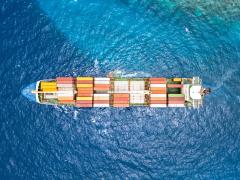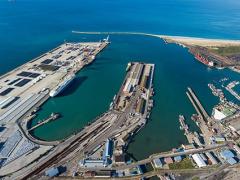For veteran shipping firms working into and out of Angola, knowledge of how the country operates is an advantage when advance word comes of changing procedures, which can be anticipated to the shipper’s advantage. An example happened in early September when Angolan officials declared a ban on second hand rolling cargo, including cars and trucks, from the country’s key port at Luanda. NileDutch, the global sea freight giant in business in Angola for 28 years, ensured that its customers' second hand rolling stock would arrive at Luanda aboard the NileDutch Prodigy 847 and the NileDutch Prominence 845 before the September 20 cut-off date, and assured shippers that it would in future route such cargo through the ports of Lobito and Namibe. Within four weeks the authorities had changed this decision again, and the line adapted the operation immediately by stowing cargo in such way that it can be discharged in Luanda if this is approved (only several days before arrival), and otherwise leave it onboard for Lobito. The Angolan ports Luanda, Lobito, Namibe, Cabinda and Soyo are well served by NileDutch with dedicated services from Europe, Asia, Brazil and also South Africa (Durban and Cape Town – SAWA Service). Roro and container vessels equipped with a variety of cargo handling equipment transport project equipment, heavy lifts, containers (including reefers) and roro. Apart from Angola NileDutch also offers services to other parts of West Africa such as Libreville, Pointe Noire and Matadi. On top of this the line also connects Durban with China and South East Asia for imports and exports. This SWAX service operates twice a month between the ports of Shanghai, Shekou (China), and Singapore in Asia and Durban (South Africa), Lome (Togo), Tema (Ghana) and Lagos (Nigeria). Since June of this year the line has been represented by a new independent entity operating as NileDutch South Africa with offices in Johannesburg, Durban and Cape Town. The company’s nearly three decades of experience includes almost one decade in South Africa.












